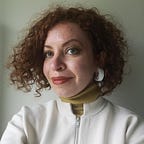PhD reflections: a year of doing and inquiring
This blog is part of a ‘thinking out loud’ series where I share updates from my PhD inquiry, which focuses on design futures methods for urban resilience. For the previous post, see here.
It’s been quite a while since I last shared an update from my PhD inquiry and it’s felt sometimes murky, sometimes foggy, with the odd glimmer of clarity among a sea of questions.
I’ve got lots of blog drafts on various parts of my research — from methodology (design research) and data analysis highlights, to reflections on building communities of practice, or insights from a system diagnosis process on Copenhagen’s urban resilience strategy, all waiting to be edited and shared. I’m hoping to move some of these out my drafts folder in the next couple of months, but meanwhile, here’s some things I’ve been up to and some things I’ll be doing next — and hopefully it won’t be as long until my next update.
Urban Futures: Systemic or System Changing? An interdisciplinary literature review of theory — implementation gaps using Meadows’ Leverage Points as analytical framework [pending publication]
I’ve used the Meadows Leverage Points as analytical framework to map the types of interventions areas identified within current positions across four key concepts regarding urban change (urban sustainability, resilience, transformation and transitions).
The findings of my literature review indicate that although the emerging narratives for preferable urban futures aim to be system changing (in leading to the emergence of new system configurations in line with sustainability agendas and frameworks such as the Sustainable Development Goals or the New Urban Agenda), in themselves they are not systemic, thus falling short of acknowledging and interrogating the dominant worldview, values and paradigm underpinning them. Addressing the gaps between theory and implementation requires us, as urban change researchers and practitioners, to interrogate our own agency as narrative shaping agents.
We need as many interventions ‘out there’ as we need ‘in here’ — going beyond technocratic skills through cultivating self-reflexivity, effective communities of practice and new forms of organising for knowledge production.
Design Research Cycle 1: Copenhagen Urban Resilience Summer School, September 2019
Building on from the findings of my literature review mentioned above, I embarked on the first cycle of my design research process — through acting as a participant — facilitator in this year’s urban resilience summer school hosted by the International Urban Resilience Academy.
Drawing on systems thinking, design futures and urban resilience, I’m seeking to:
- Investigate theory — implementation gaps between current research, strategies, policies and interventions in the urban resilience system.
- Develop and test systemic design futures methods to address theory — implementation gaps.
- Reflect and propose strategies for an evolved role of systemic practitioners in the wider urban resilience change system.
Over 9 intense days, I’ve been learning and co-inquiring with an array of interdisciplinary urban resilience peers — practitioners, academics, policy makers, and you can see my daily rhythm visualised below.
Zooming out, here’s a diagram of the broader design research process — an iteration of the Copenhagen summer school is in the works for Jun/Jul 2020, while for the third cycle I’m currently toying with the idea of organising a London chapter of the summer school.
Coming up next…
- I’m heading off to COP25 to present this research project and some highlights so far as part of an urban resilience side event. Having never been to such a gathering I’ve no idea what to expect, but I’ll try my best to share thoughts & reflections as soon I can;
- As I’ve nearly got all my transcripts ready, I’ll be deep diving into data analysis and experimenting with narrative analysis to make sense of the wide array of themes and patterns that has already come up from the first DR cycle; currently thinking of ways to share some work in progress — perhaps a zoom webinar in Jan/Feb 2020?
Reflection questions…
Although this has been more download, less reflection type of post, here’s some questions I’m currently sitting with:
Me — How can I ensure my learning and facilitation edges are nourished? What support do I need to find my writing voice and style?
Us — How might the nub of this urban resilience community of practice flourish and what roles do we need to cultivate it?
We — “Are there ways in which action research can transcend the single case without losing the action element along the road?” — following (Gustavsen, 2003, p.95)
